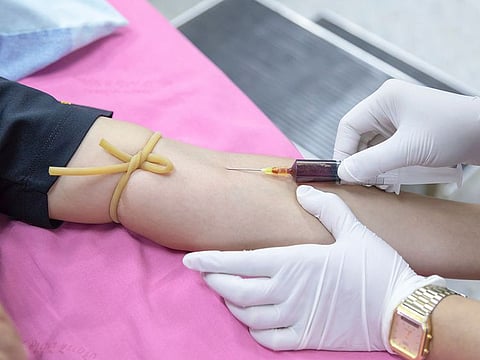Over 537 children test HIV positive in Pakistan village
A doctor using a contaminated syringe is suspected of spreading the disease

Islamabad: Pakistan said on Sunday more than 600 people, most of them children, had tested HIV positive in a village in southern Sindh province.
Concern grew after hundreds of people were allegedly infected by a doctor using a contaminated syringe in Rato Dero and surrounding villages of Larkana district.
"Some 681 people, of which 537 were children from two-12 years of age, had been tested positive for HIV until yesterday in Rato Dero village," special health advisor Zafar Mirza told a press conference in Islamabad.
Some 681 people, of which 537 were children from two-12 years of age, had been tested positive for HIV until yesterday in Rato Dero villageZafar Mirza, special health advisor
He said 21,375 people had been screened in Rato Dero, adding "the increase in the number of patients being tested positive for HIV is a matter of grave concern for the government".
Mirza said the "use of unsafe syringes might be one of the causes for spread of the disease but the government is making all-out efforts to ascertain the exact cause".
Also Read: Quack doctors cause HIV panic in Pakistan
Also Read: HIV reported cured in a second patient
"Prime Minister Imran Khan is going to unveil drastic measures to prevent the disease once we get ascertain the cause of the spread of disease".
Parents in the area fear their children's futures have been irreparably harmed after contracting HIV, especially in a country whose masses of rural poor have little understanding of the disease or access to treatment.
Pakistan was long considered a low prevalence country for HIV, but the disease is expanding at an alarming rate, particularly among intravenous drug users and sex workers.
With about 20,000 new HIV infections reported in 2017 alone, Pakistan currently has the second-fastest growing HIV rates across Asia, according to the UN.
Pakistan's surging population also suffers the additional burden of having insufficient access to quality healthcare following decades of under-investment by the state, leaving impoverished, rural communities especially vulnerable to unqualified medical practitioners.
Sign up for the Daily Briefing
Get the latest news and updates straight to your inbox



